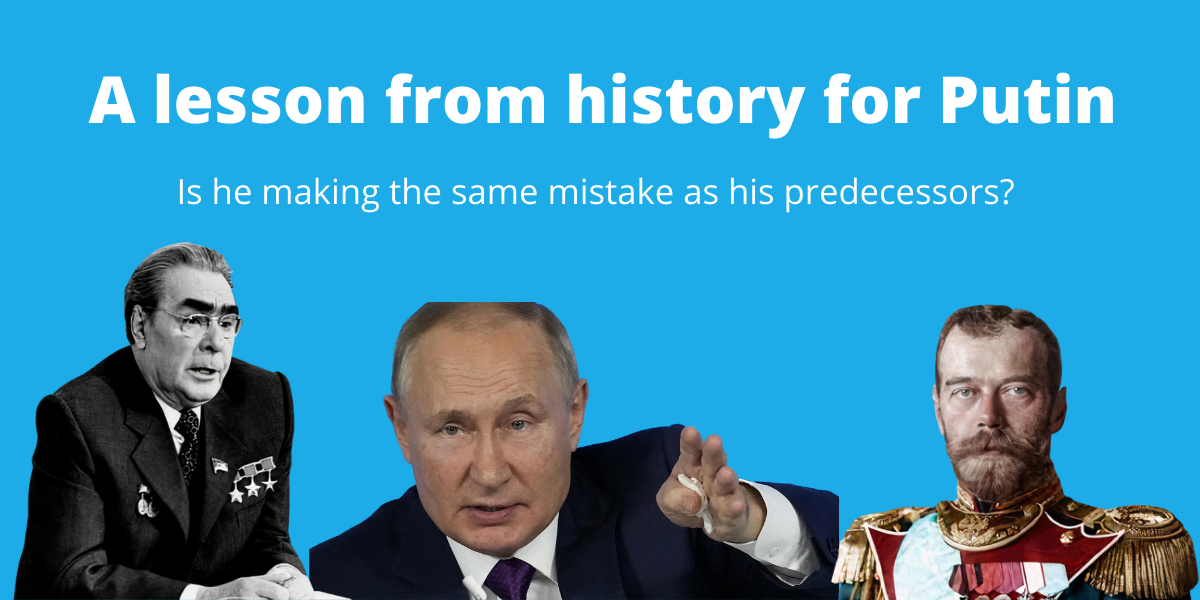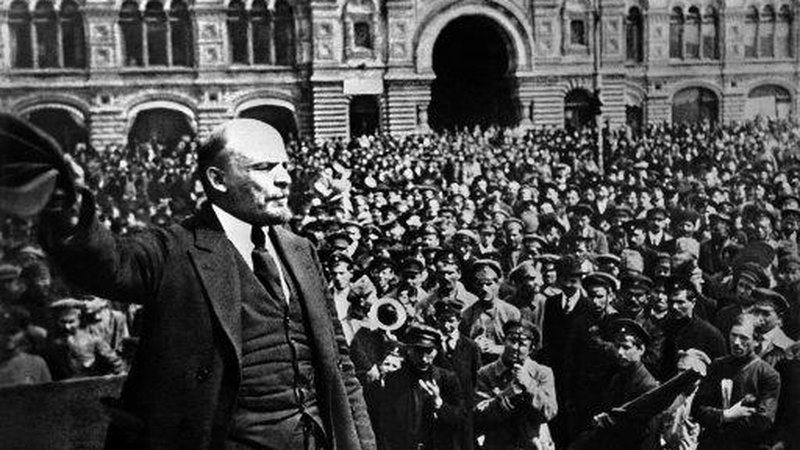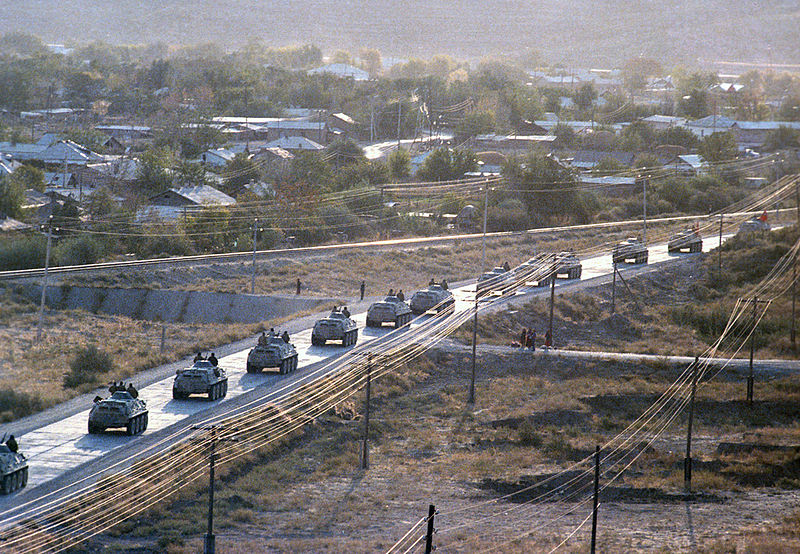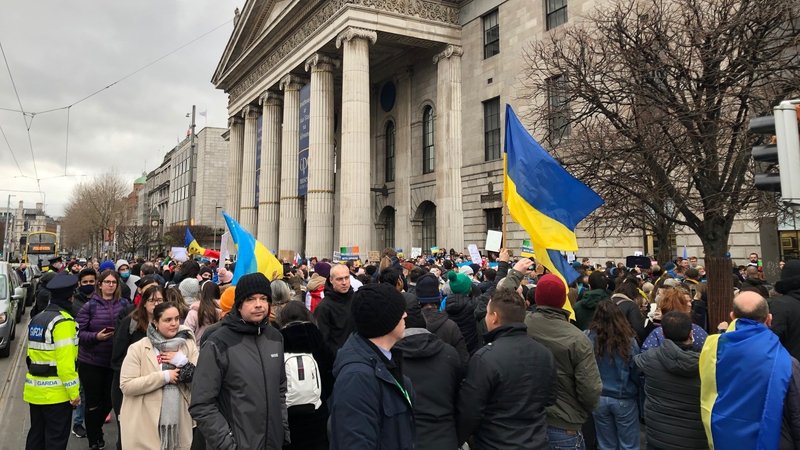A lesson from history for Putin

The Russian Empire
In 1904, Czar Nicholas II of Russia led his country into war with Japan after a failed diplomatic attempt to expand Russian influence in Manchuria and Korea. A year later, the Russian Empire suffered a humiliating defeat to the hands of the Japanese Empire. The loss of life without victory and the humiliating defeat contributed to growing unrest which culminated in the 1905 Russian Revolution, which was a precursor to the two revolutions of 1917, which long story short, led to the establishment of the USSR.

Photo: Tass/PA Images
The Soviet Union
The Soviet Union was an economic backwater for the first few years of its existence, but with Lenin’s New Economic Policy and later Stalin’s rapid industrialisation and collectivisation, the country became more powerful militarily and economically. After the victory of the Allies in the Second World War, the Cold War began and the influence and power of the USSR expanded even further.
On Christmas Eve 1979, after infighting in the People’s Democratic Party of Afghanistan, the Soviet Union invaded the country to oust Hafizullah Amin to install the more Soviet aligned Babrak Karmal. Amin was assassinated on December 27 and replaced by Karmal, but the people of the country did not like the invaders, the Organisation of Islamic Cooperation adopted a resolution demanding “the immediate, urgent and unconditional withdrawal of Soviet troops” from Afghanistan and the UN General Assembly passed a resolution protesting Soviet intervention by a huge majority (108 for, 18 against and 18 abstentions). Despite all of this the Soviets did not budge, and a decade long war with the mujahideen ensued. As it went on, Soviet soldiers became more and more disillusioned with the war. One mujahid would be killed, only to be replaced by many more. As an anonymous Russian Commander put it at the time: “How do you defeat an enemy who looks into the barrel of a gun and sees paradise?”. The USSR pulled out of Afghanistan in 1989. They left the country in tatters, ripe for the Taliban to take over. The war contributed to the fall of the Soviet Union by undermining the image of the Red Army as invincible (The first war they had clearly lost), undermining Soviet legitimacy, and by creating new forms of political participation.

Photo: RIA Novosti archive, image #644461 / Yuriy Somov / CC-BY-SA 3.0, CC BY-SA 3.0 <https://creativecommons.org/licenses/by-sa/3.0>, via Wikimedia Commons
The Russian Federation
After the fall of the USSR, the newly formed Russian Federation was also left in tatters. As the oligarchs took control of the valuable resources, poverty and economic inequality surged, with the Gini ratio increasing massively. Russia’s GDP was half of what it had been in the early 1990s. Life expectancy for men fell abruptly from a high of 65 years in 1987 to a low of 57 years in 1994, and a 2001 study by economist Steven Rosefielde, found that there were 3.4 million premature deaths in Russia from 1990 to 1998, partially due to the collapse of the USSR. The Soviet Union was a highly authoritarian and undemocratic country, but what I have just laid out was a disaster. Neoliberalism and market fundamentalism had engulfed a previously (so-called) socialist state, and in late 1999, a man by the name of Vladimir Vladimirovich Putin became Prime Minister, you might have heard of him.

Image: Cold Light, adapted from earlier LokiiT’s work on Wikipedia
Putin alternated between being Prime Minister and President but it is clear he has been the leader of Russia since the early 2000s. Putin oversaw the recovery from the destruction the fall of the USSR caused and ended the war in Chechnya. Russia was starting to become more powerful, and in the late 2000s and early 2010s Putin began either annexing or invading countries (for example in Crimea and Georgia) or supporting a certain side in conflicts (for example in Syria) in order to reclaim Russia’s historical influence. This worked, with Crimea now under Russian control, Russia having “direct control” over separatist regions in Georgia according to the European Court of Human Rights, and Bashar Al-Assad staying in power in Syria, just far more under Russian influence. Things were looking good for Russia geopolitically, and they were about to get one step better. In 2020, President and dictator of Belarus Alexander Lukashenko faced widespread protests against his regime. For decades, he had been able to stay neutral between the geopolitical opponents of Russia and Europe. He had to turn to someone to help him quell this dissent, but Europe was not going to be seen to be openly helping a dictator put down protests. Putin obliged saying “Russia will provide comprehensive assistance to ensure the security of Belarus in the event of external military threats”. This came at a price however. Lukashenko has been a puppet of Putin ever since.
Russia has hugely expanded its influence since the fall of the USSR, and now Putin wants more. The invasion of Ukraine by Russian forces started on February 24th. While Russia has taken some territory, Ukraine has so far successfully put up a resilient defence. Despite being invaded on all sides and facing a far larger army, Russia has yet to take a major city. The whole world has rallied around Ukraine. Huge protests are happening around the world (including in Russia). Sanctions are already having a major effect with the freezing of assets of the Russian state and oligarchs, the Russian stock market and the ruble plummeting and Russian banks being barred from SWIFT. The EU and the US are sending arms and humanitarian aid worth hundreds of millions to Ukraine, not to mention the huge amount of charitable donations reflecting international sympathy. The bravery of the Ukrainian people has been shown to the world through lots of civilians willing to stay to fight and an International Brigade has been set up for foreign volunteers.

Image: RTE
Although Putin thinks he is reclaiming territory to return to the glory days of the Russian Empire and the USSR, he is actually doing the exact thing that led to the demise of both. Nicholas II didn’t know when to stop, Brezhnev didn’t know when to stop and Putin is making the same mistake of going one step too far. This could very well be the beginning of the end of the Putin era.
